In a letter to Maurice Solovine, Einstein wrote: "I can understand your aversion to the use of the term 'religion' to describe an emotional and psychological attitude which shows itself most clearly in Spinoza... I have not found a better expression than 'religious' for the trust in the rational nature of reality that is, at least to a certain extent, accessible to human reason."
"While it is true that scientific results are entirely independent from religious or moral considerations, those individuals to whom we owe the great creative achievements of science were all of them imbued with the truly religious conviction that this universe of ours is something perfect and susceptible to the rational striving for knowledge. If this conviction had not been a strongly emotional one and if those searching for knowledge had not been inspired by Spinoza's Amor Dei Intellectualis, they would hardly have been capable of that untiring devotion which alone enables man to attain his greatest achievements."
Albert Einstein
Do Scientists Pray? Einstein Answers a Little Girl’s Question about Science vs. Religion
Good Vibrations: The Role Of Music In Einstein’s Thinking
"While it is true that scientific results are entirely independent from religious or moral considerations, those individuals to whom we owe the great creative achievements of science were all of them imbued with the truly religious conviction that this universe of ours is something perfect and susceptible to the rational striving for knowledge. If this conviction had not been a strongly emotional one and if those searching for knowledge had not been inspired by Spinoza's Amor Dei Intellectualis, they would hardly have been capable of that untiring devotion which alone enables man to attain his greatest achievements."
Albert Einstein
Do Scientists Pray? Einstein Answers a Little Girl’s Question about Science vs. Religion
Good Vibrations: The Role Of Music In Einstein’s Thinking
"Science Depends On The Religious Attitude," Albert Einstein's Writings On Religion
Religious and Philosophical Views Of Albert Einstein
Electromagnetic fields are not of the mind... Creation may be spiritual in origin, but that doesn't mean that everything created is spiritual. How can I explain such things to you? Let us accept the world is a mystery. Nature is neither solely material nor entirely spiritual. Man, too, is more than flesh and blood; otherwise, no religions would have been possible. Behind each cause is still another cause; the end or the beginning of all causes has yet to be found. Behind each cause is still another cause; the end or the beginning of all causes has yet to be found. Yet, only one thing must be remembered: there is no effect without a cause, and there is no lawlessness in creation."
Religious and Philosophical Views Of Albert Einstein
Electromagnetic fields are not of the mind... Creation may be spiritual in origin, but that doesn't mean that everything created is spiritual. How can I explain such things to you? Let us accept the world is a mystery. Nature is neither solely material nor entirely spiritual. Man, too, is more than flesh and blood; otherwise, no religions would have been possible. Behind each cause is still another cause; the end or the beginning of all causes has yet to be found. Behind each cause is still another cause; the end or the beginning of all causes has yet to be found. Yet, only one thing must be remembered: there is no effect without a cause, and there is no lawlessness in creation."
"O Magnum Mysterium" by Morten Lauridsen
"O Magnum Mysterium" by Morten Lauridsen arranged for violinist, Anne Akiko Myers, by the composer
"O Magnum Mysterium"choral rendition
"O Magnum Mysterium" by Morten Lauridsenarranged by Sandra Dackow
"O Magnum Mysterium" by Morten Lauridsen
"O Magnum Mysterium" by Morten Lauridsen arranged for violinist, Anne Akiko Myers, by the composer
"O Magnum Mysterium"
choral rendition
"O Magnum Mysterium" by Morten Lauridsen
arranged by Sandra Dackow
O Magnum Mysteriuman article by Merideth Hite EstevezArtists for Joy
"Don't think about why you question, simply don't stop questioning. Don't worry about what you can't answer, and don't try to explain what you can't know. Curiosity is its own reason. Aren't you in awe when you contemplate the mysteries of eternity, of life, of the marvelous structure behind reality? And this is the miracle of the human mind—to use its constructions, concepts, and formulas as tools to explain what man sees, feels and touches. Try to comprehend a little more each day. Have holy curiosity." Albert Einstein
O Magnum Mysterium
an article by Merideth Hite Estevez
Artists for Joy
"Don't think about why you question, simply don't stop questioning. Don't worry about what you can't answer, and don't try to explain what you can't know. Curiosity is its own reason. Aren't you in awe when you contemplate the mysteries of eternity, of life, of the marvelous structure behind reality? And this is the miracle of the human mind—to use its constructions, concepts, and formulas as tools to explain what man sees, feels and touches. Try to comprehend a little more each day. Have holy curiosity." Albert Einstein
Who Woulda Thunk It?!? Shakespeare, Einstein, J. B. S. Haldane And Wendell Berry Converge On Truth
"Tolkien, Lewis, Rowling and The Redemption Of The Modern World"
Biblical Literalism And Bibliolatry Are Open Invitations To Self-Righteousness, Wrath And Hatred
I see no impediment between Einstein's prior quote and this observation by James Martin.
My Credo (1932)
]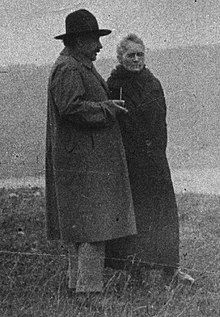
- Speech to the German League of Human Rights, Berlin (Autumn 1932); as published in Einstein: A Life in Science (1994) by Michael White and John Gribbin. This repeats or revises some statements and ideas of Mein Weltbild (1931) · Full text online · alternate online source
- Our situation on this earth seems strange. Every one of us appears here involuntarily and uninvited for a short stay, without knowing the whys and the wherefore. In our daily lives we only feel that man is here for the sake of others, for those whom we love and for many other beings whose fate is connected with our own. I am often worried at the thought that my life is based to such a large extent on the work of my fellow human beings and I am aware of my great indebtedness to them.
- I do not believe in freedom of the will. Schopenhauer's words: "Man can do what he wants, but he cannot will what he wills" accompany me in all situations throughout my life and reconcile me with the actions of others even if they are rather painful to me. This awareness of the lack of freedom of will preserves me from taking too seriously myself and my fellow men as acting and deciding individuals and from losing my temper.
- Variant translation:
- I do not believe in free will. Schopenhauer's words: 'Man can do what he wants, but he cannot will what he wills,' accompany me in all situations throughout my life and reconcile me with the actions of others, even if they are rather painful to me. This awareness of the lack of free will keeps me from taking myself and my fellow men too seriously as acting and deciding individuals, and from losing my temper.
- My passion for social justice has often brought me into conflict with people, as has my aversion to any obligation and dependence I did not regard as absolutely necessary.
I have a high regard for the individual and an insuperable distaste for violence and fanaticism. All these motives have made me a passionate pacifist and antimilitarist. I am against any chauvinism, even in the guise of mere patriotism.
Privileges based on position and property have always seemed to me unjust and pernicious, as does any exaggerated personality cult. I am an adherent of the ideal of democracy, although I know well the weaknesses of the democratic form of government. Social equality and economic protection of the individual have always seemed to me the important communal aims of the state.
Although I am a typical loner in daily life, my consciousness of belonging to the invisible community of those who strive for truth, beauty, and justice keeps me from feeling isolated.
- The most beautiful and deepest experience a man can have is the sense of the mysterious. It is the underlying principle of religion as well as all serious endeavor in art and science. He who never had this experience seems to me, if not dead, then at least blind. To sense that behind anything that can be experienced there is a something that our mind cannot grasp and whose beauty and sublimity reaches us only indirectly and as a feeble reflection, this is religiousness.
In this sense I am religious. To me it suffices to wonder at these secrets and to attempt humbly to grasp with my mind a mere image of the lofty structure of all that there is.
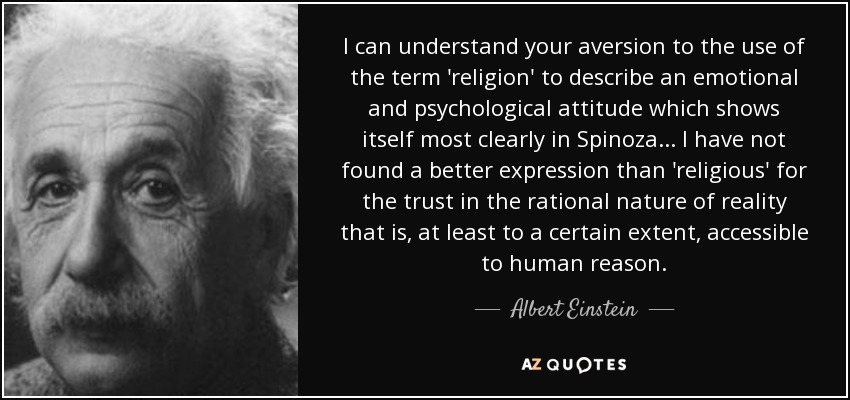
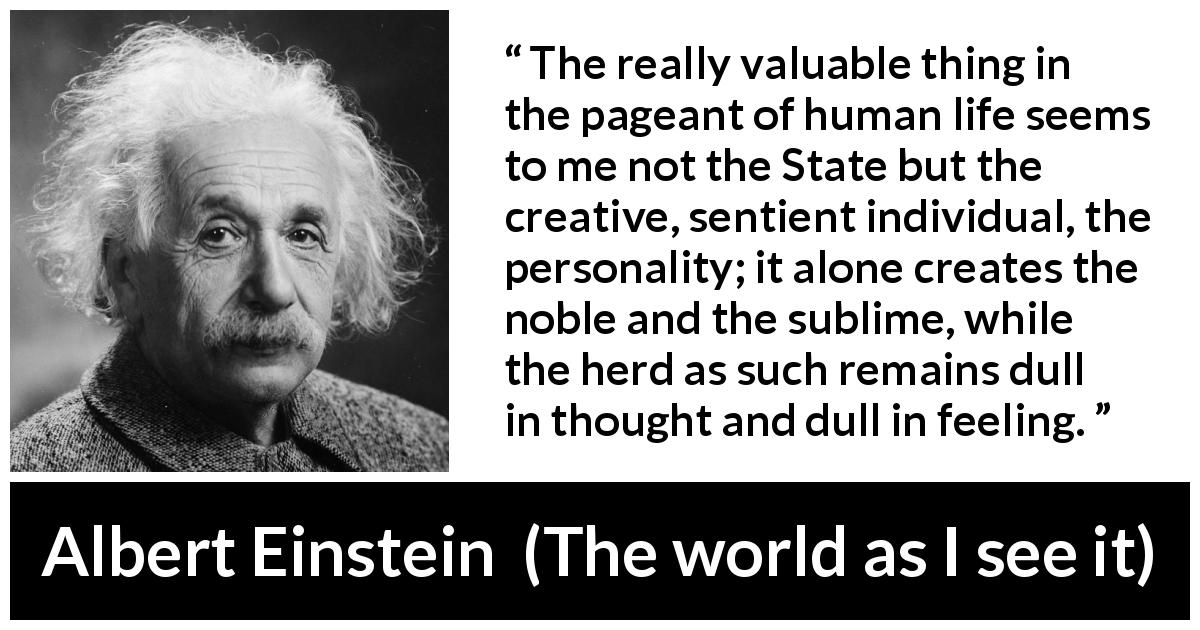

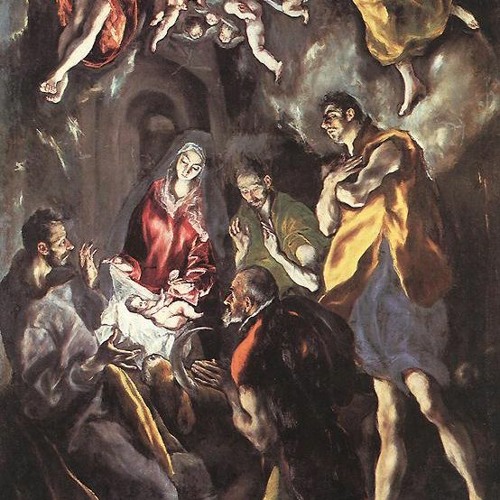
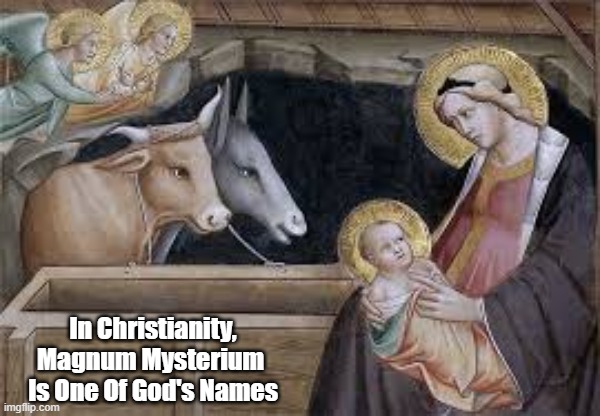


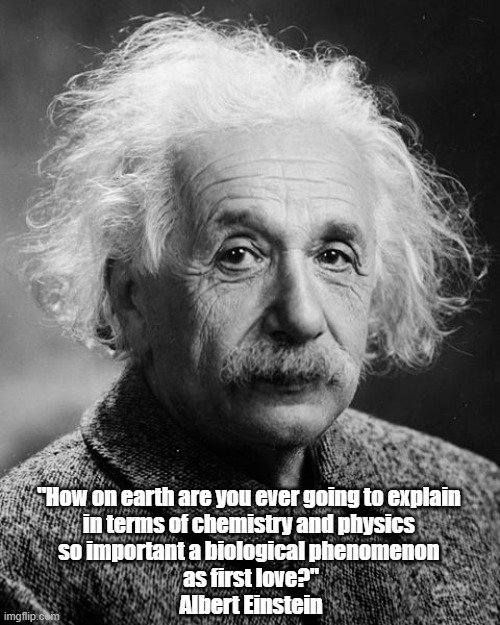
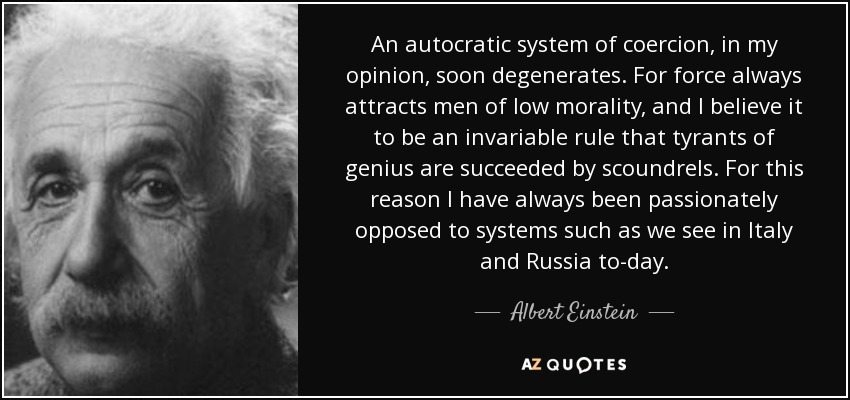



No comments:
Post a Comment